
Hematologie
Scope & Guideline
Advancing the Science of Blood Disorders
Introduction
Aims and Scopes
- Hematological Malignancies:
The journal focuses significantly on various hematological malignancies, including leukemias, lymphomas, and myelomas, emphasizing both clinical and laboratory research. - Translational Research:
A key aim is to bridge basic research and clinical applications, particularly through studies that explore the molecular and genetic basis of hematological diseases and their implications for treatment. - Innovative Therapies:
The journal highlights advancements in therapy, particularly novel treatment modalities such as CAR-T cells, bispecific antibodies, and targeted therapies, aiming to improve patient outcomes. - Patient-Centric Approaches:
Research addressing quality of life, patient management, and the role of patients in their care is increasingly prominent, reflecting a shift towards more holistic treatment paradigms. - Hematopoietic Stem Cell Research:
An important area of focus is the biology of hematopoietic stem cells, including their role in hematopoiesis, disease progression, and aging.
Trending and Emerging
- Chimeric Antigen Receptor (CAR) T-cell Therapy:
The increasing frequency of studies on CAR-T cell therapies signifies a major trend, showcasing their transformative potential in treating various hematological malignancies. - Precision Medicine and Genomics:
There is a growing emphasis on precision medicine, with research focusing on genetic mutations and their implications for targeted therapies, reflecting a broader trend towards personalized treatment strategies. - Impact of the Microenvironment:
Emerging studies are exploring the role of the tumor microenvironment in hematological diseases, indicating a trend towards understanding how external factors influence disease progression and treatment responses. - Quality of Life and Patient-Centric Care:
Research that incorporates patient perspectives, quality of life assessments, and patient management strategies is gaining traction, highlighting the importance of holistic care in hematology. - Innovations in Treatment Protocols for Elderly Patients:
With an aging population, there is a notable increase in studies addressing the specific needs and treatment strategies for elderly patients with hematological conditions.
Declining or Waning
- Traditional Chemotherapy Approaches:
Research focusing on conventional chemotherapy regimens for hematological malignancies is less frequent, as there is a notable shift towards targeted and immunotherapeutic strategies. - Basic Hematology:
Articles centered on fundamental aspects of hematology, such as classical hematological diagnostics and treatment protocols, are declining, possibly due to the rise of more complex and integrated approaches. - Older Studies on Hemostasis:
The emphasis on traditional studies of hemostasis and thrombosis management appears to be waning, with less focus on established protocols in favor of emerging therapies and interventions.
Similar Journals
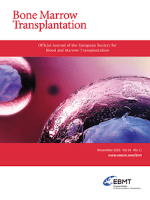
BONE MARROW TRANSPLANTATION
Leading the Charge in Cutting-edge Transplantation Research.BONE MARROW TRANSPLANTATION, published by SpringerNature, stands as a leading journal in the fields of Hematology and Transplantation, as evidenced by its recognition in the Q1 category for both disciplines according to 2023 rankings. With an impressive impact factor and notable Scopus rankings—7th out of 54 in Medicine Transplantation and 25th out of 137 in Medicine Hematology—this journal is instrumental for researchers and professionals dedicated to advancements in bone marrow transplantation practices and research. Established in 1986, the journal publishes original research, clinical studies, and reviews that push the boundaries of current knowledge, making it essential reading for those looking to stay abreast of the latest developments in the field. Although offering limited Open Access options, BONE MARROW TRANSPLANTATION reaches a broad audience and furthers a global dialogue on best practices and innovative approaches in transplantation medicine. Its address in London, UK positions it at the heart of international research collaboration, fostering connections among scientists, clinicians, and students alike.
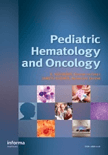
PEDIATRIC HEMATOLOGY AND ONCOLOGY
Empowering healthcare through cutting-edge pediatric studies.Pediatric Hematology and Oncology, published by Taylor & Francis Inc, serves as a vital platform dedicated to the fields of hematology, oncology, and pediatrics, providing a comprehensive avenue for the dissemination of scholarly research and clinical advancements. With an ISSN of 0888-0018 and an E-ISSN of 1521-0669, this journal has successfully converged its expertise over the years from 1984 to 2024. Ranked in the Q3 category for Hematology and Oncology, alongside a Q2 ranking in Pediatrics, Perinatology, and Child Health (2023), it engages a diverse readership comprising researchers, healthcare professionals, and students eager to explore groundbreaking studies in child health and treatment methodologies. While it currently does not offer Open Access options, the journal is widely cited and recognized, particularly in its specialized fields, fostering a rich environment for dialogue and innovation in the management of pediatric hematological and oncological disorders. The journal is based in the United Kingdom at 530 Walnut Street, Ste 850, Philadelphia, PA 19106, making it an essential resource for those pursuing excellence in pediatric medical research.

Indian Journal of Hematology and Blood Transfusion
Pioneering Research in Hematology for Tomorrow's HealthcareIndian Journal of Hematology and Blood Transfusion, published by SPRINGER INDIA, serves as a leading platform for disseminating original research, reviews, and case studies in the field of hematology. With an ISSN of 0971-4502 and E-ISSN 0974-0449, this journal has been instrumental in advancing knowledge from 2000 to 2024, providing insights into critical issues surrounding blood disorders and transfusion practices. Currently ranked in the Q3 category for Hematology for 2023, it reflects a commitment to high-quality scientific content amidst a competitive landscape where it ranks 97/137 in Scopus for Medicine - Hematology, placing it in the 29th percentile of its peers. The journal primarily addresses a diverse readership, including researchers, healthcare professionals, and students, aiming to foster innovation and collaboration within the field. Although it operates under a subscription model, access options for individual articles and institutional subscriptions ensure that valuable research is disseminated widely to enhance medical practice and education in hematology.

INTERNATIONAL JOURNAL OF HEMATOLOGY
Advancing the Science of Blood HealthThe INTERNATIONAL JOURNAL OF HEMATOLOGY, published by SPRINGER JAPAN KK, serves as a critical platform for advancing research in the field of hematology. With a prestigious history spanning over three decades from 1991 to 2024, this journal is recognized for its impactful contributions, evidenced by its Q2 category ranking in Hematology for 2023, and its notable position at rank #71 out of 137 in the Scopus Medicine Hematology category. Researchers and professionals within the hematology community benefit from the journal's rigorous peer-reviewed articles that cover a wide range of topics, including clinical studies, basic research, and novel therapeutic strategies. Though currently non-open access, it provides essential insights and findings to an audience passionate about the latest advancements in blood disorders and treatments. Situated in Japan, the journal not only showcases high-quality research but also fosters a global exchange of knowledge in hematology, making it a significant resource for scholars, practitioners, and students alike.
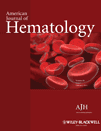
AMERICAN JOURNAL OF HEMATOLOGY
Empowering Discoveries in Blood DisordersAmerican Journal of Hematology, published by Wiley, stands as a premier outlet for the dissemination of cutting-edge research in the field of hematology. With a commendable impact factor and ranked #9 out of 137 in the Scopus medicine category, this journal has established a robust presence since its inception in 1976. Operating in the Q1 quartile for hematology, it serves as a crucial resource for researchers, clinicians, and students dedicated to understanding blood disorders and advancing treatment methodologies. While the journal does not currently offer open access options, it remains highly regarded for its rigorous peer-review process and impactful contributions to the scientific community. With coverage extending into 2024, the American Journal of Hematology is committed to fostering innovation and collaboration within the hematological sciences.

Experimental Hematology & Oncology
Driving Progress in Blood Health and Cancer SolutionsExperimental Hematology & Oncology is a premier journal published by BMC, dedicated to advancing knowledge in the fields of hematology, oncology, and cancer research. Since its inception in 2012, this Open Access journal has emerged as a vital resource for researchers and healthcare professionals, fostering the dissemination of high-quality research that enhances our understanding of blood disorders and malignancies. With impressive rankings in Quarters 1 of key categories including Cancer Research, Hematology, and Oncology, it holds significant prestige, evidenced by its Scopus rankings: #42/404 in Medicine (Oncology) and #17/137 in Medicine (Hematology). The journal aims to publish cutting-edge studies, reviews, and perspectives that contribute to the evolution of therapeutic strategies and innovative treatment modalities. Researchers and practitioners alike will find this journal indispensable for staying at the forefront of breakthroughs in hematological and oncological research.
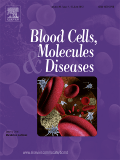
BLOOD CELLS MOLECULES AND DISEASES
Bridging Research and Clinical Insights in HematologyBLOOD CELLS MOLECULES AND DISEASES is a prominent multidisciplinary journal published by Academic Press Inc., Elsevier Science, specializing in the fields of hematology, molecular biology, and cell biology. With an ISSN of 1079-9796 and an E-ISSN of 1096-0961, this journal serves as a vital resource for researchers, professionals, and students exploring the complex interplay between blood cells and their corresponding molecular pathways in disease states. Spanning topics from cellular mechanisms to therapeutic advancements, BLOOD CELLS MOLECULES AND DISEASES holds a commendable reputation with a 2023 category quartile ranking of Q2 in Hematology and Q3 in several related fields. This journal not only provides a platform for the dissemination of innovative research but also fosters collaboration and knowledge exchange within the scientific community. As it converges from 1995 to 2025, the journal continues to impact the medical and biological sciences significantly, making it an essential tool for advancing our understanding of hematologic diseases.

HemaSphere
Transforming knowledge into patient care advancements.HemaSphere, published by WILEY, stands at the forefront of hematology research, offering a vital platform for the dissemination of cutting-edge findings in the field. Since its inception in 2017 and official transition to Open Access in 2018, the journal has positioned itself as a leading conduit for high-impact research, maintaining a prestigious Q1 quartile ranking in the Hematology category as of 2023. Addressed in the United States at 111 River St, Hoboken, NJ, HemaSphere aims to foster a global dialogue among researchers, clinicians, and students by providing unrestricted access to high-quality content that encompasses clinical and experimental advancements. With an array of engaging articles, reviews, and commentaries, HemaSphere contributes significantly to the advancement of hematology, ensuring that critical knowledge is readily accessible to enhance patient care and innovative research. To explore the latest developments and breakthroughs in this dynamic field, we invite scholars, professionals, and students to engage with HemaSphere and elevate their understanding of hematologic science.
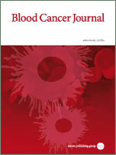
Blood Cancer Journal
Leading the charge in hematology and oncology.Blood Cancer Journal, published by SPRINGERNATURE, is a leading open-access journal that has been at the forefront of hematology and oncology research since its inception in 2011. With an impressive impact factor and a commitment to disseminating high-quality research, it holds a prestigious Q1 ranking in both hematology and oncology categories as of 2023. The journal is dedicated to publishing innovative studies, comprehensive reviews, and insightful commentaries that advance our understanding of blood cancers, making it an essential resource for researchers, healthcare professionals, and students in the field. Its open-access model ensures that groundbreaking research is accessible to a global audience, promoting collaborative efforts to enhance treatment methodologies and patient outcomes. With a strong reputation illustrated by its Scopus rankings—8th in hematology and 30th in oncology—Blood Cancer Journal exemplifies excellence and leadership in the ever-evolving landscape of cancer research.

Journal of Hematology
Elevating Hematology Through Collaborative ResearchThe Journal of Hematology, published by ELMER PRESS INC, serves as a pivotal platform for disseminating cutting-edge research in the field of hematology. With an ISSN of 1927-1212 and an E-ISSN of 1927-1220, this journal is committed to advancing scientific knowledge and clinical practice through high-quality peer-reviewed articles encompassing all aspects of blood disorders, from basic science to health policy implications. While the journal currently operates under a traditional access model, it nonetheless prioritizes the rapid publication of significant findings, ensuring that researchers, clinicians, and students have timely access to the latest advancements in hematological research. Positioned to bridge gaps in knowledge and foster collaboration among scholars worldwide, the Journal of Hematology is an essential resource for anyone invested in this vital area of medicine.